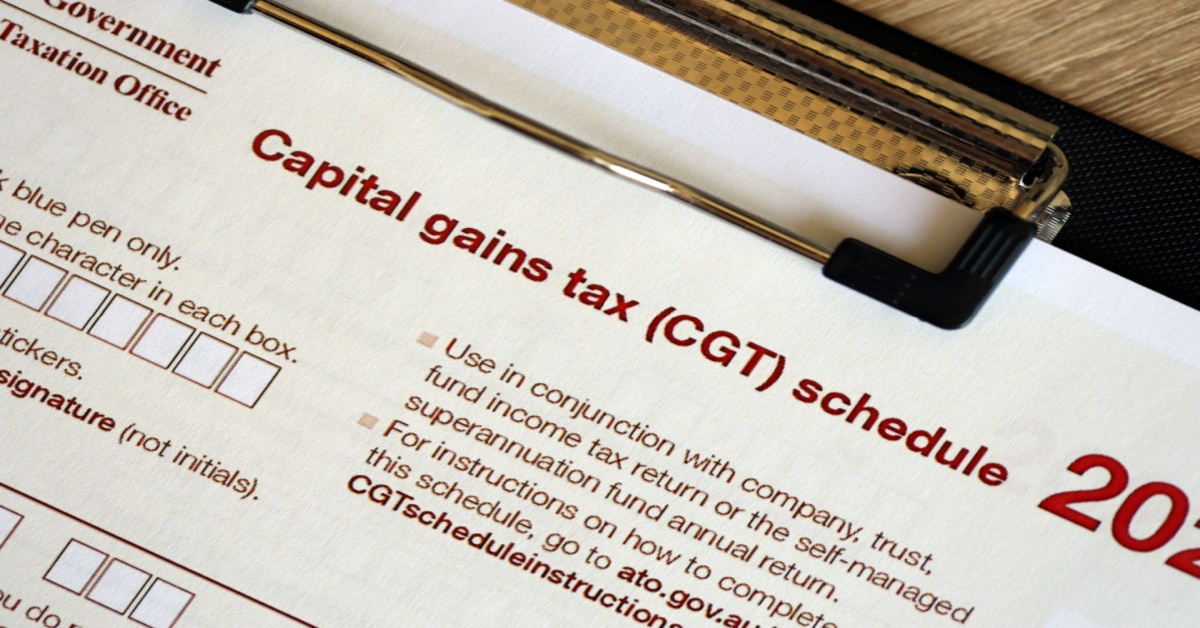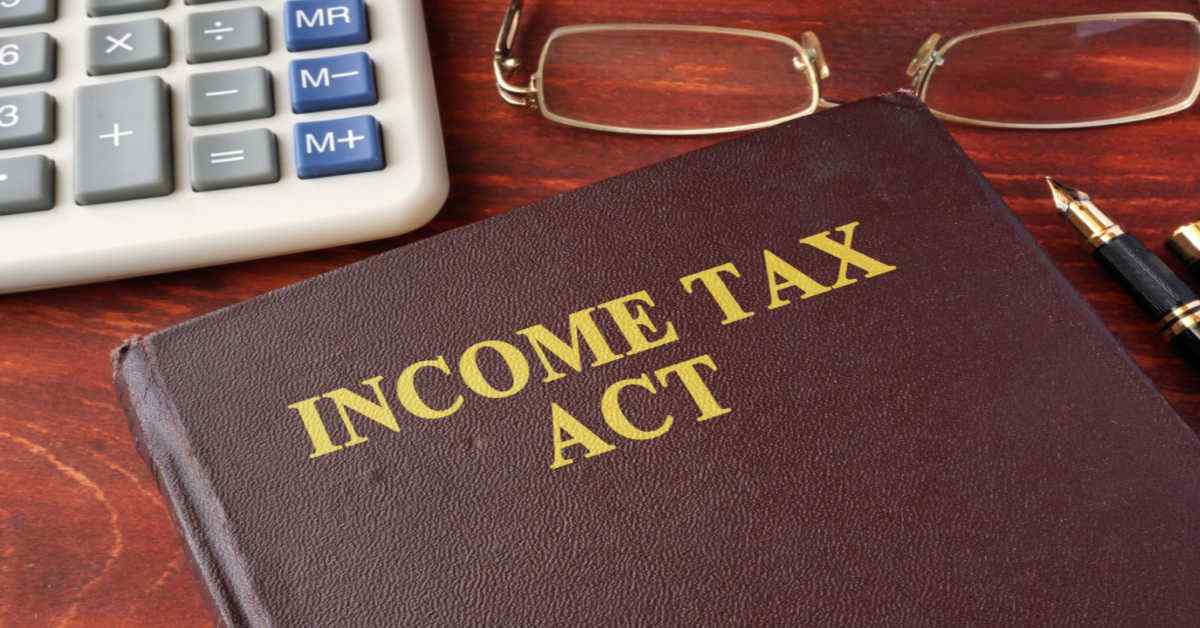Table of Contents
Quality Service Guarantee Or Painting Free

Get a rental agreement with doorstep delivery

Find the BEST deals and get unbelievable DISCOUNTS directly from builders!

5-Star rated painters, premium paints and services at the BEST PRICES!
Loved what you read? Share it with others!


Submit the Form to Unlock the Best Deals Today
Help us assist you better
Check Your Eligibility Instantly

Experience The NoBrokerHood Difference!
Set up a demo for the entire community
Section 54EC of the Income Tax Act - Deduction on Long Term Capital Gain Tax
Table of Contents
Sold a long-term property and facing capital gains tax? Section 54EC of the Income Tax Act can be your saving grace. This section offers a valuable tax exemption for taxpayers who strategically reinvest their capital gains. Let's delve into the details of Section 54EC and understand how you can leverage it to save tax.
However, it's important not to confuse this with Section 50C, which relates to the transfer of land or buildings held as capital assets. In this blog post, we'll focus on Section 54EC and explain what it is and how it can benefit you as a taxpayer. By the end of this post, you'll have a better understanding of this important section of the Income Tax Act.
What is Section 54EC of the Income Tax Act of 1961?
Section 54EC of the Income Tax Act of 1961 allows for tax deductions on long-term capital gains from the sale of immovable property. The deduction can be availed by purchasing capital gain bonds, also known as 54EC bonds, which are fixed-income instruments that provide capital gains tax exemption to investors.
Quality Service Guarantee Or Painting Free

Get a rental agreement with doorstep delivery

Find the BEST deals and get unbelievable DISCOUNTS directly from builders!

5-Star rated painters, premium paints and services at the BEST PRICES!
The bonds must be purchased within six months of the sale of the immovable property, and the investment must be held for at least three years. The amount of capital gain tax that can be exempted through 54EC bonds is up to Rs. 50 lakhs per financial year. These bonds have a lock-in period of five years and cannot be sold or transferred before the end of the lock-in period.
Note:
- The exemption under Section 54EC is only applicable if the investment is made in India.
- From April 1, 2023, the capital gains tax exemption under Sections 54 to 54F will be restricted to Rs.10 crore.
Section 54ec of Income Tax Act with example:
Say you sold your land for Rs. 1 crore, resulting in a long-term capital gain of Rs. 50 lakh. Now, if you don't take any action, you'll have to pay capital gains tax on this Rs. 50 lakh.
However, Section 54EC offers a way out. If you invest the entire Rs. 50 lakh in bonds issued by specific government undertakings (like REC or NHAI) within six months of selling the land, you can claim an exemption on the entire capital gain amount. This means you won't have to pay any tax on the Rs. 50 lakh!
Bonds Eligible for Exemption Under Section 54EC of the Income Tax Act of 1961
By understanding the eligibility criteria, investment options, and the potential benefits of Section 54EC, individuals can make informed decisions to optimise their tax liabilities while ensuring the growth of their investments. To qualify for this benefit, you need to meet the following 54EC bond eligibility criteria.
Let’s explore the bonds eligible for exemption under Section 54EC, shedding light on this advantageous provision and empowering taxpayers to make strategic financial choices.
- Rural Electrification Corporation Limited (REC) bonds
- National Highway Authority of India (NHAI) bonds
- Power Finance Corporation Limited (PFC) bonds
- Indian Railway Finance Corporation Limited (IRFC) bonds.
Understanding Section 54EC Lock-in Period
Section 54EC of the Income Tax Act of 1961 provides for exemption from capital gains tax on the amount invested in bonds issued by specified government-owned companies, if the investment is made within 6 months of the date of transfer of the original asset.
The lock-in period for these bonds is 5 years. This means that you cannot sell the bonds before the expiry of the 5 years. If you do, you will have to pay capital gains tax on the amount of profit you make.
The lock-in period for Section 54EC bonds was earlier 3 years. However, it was increased to 5 years from April 1, 2018. This was done to discourage investors from using Section 54EC as a short-term investment strategy.
Key Facts to Avail of the LTCG Exemption by Investment in Capital Gain Bonds
- Capital gain bonds or 54EC bonds are fixed-income instruments that provide capital gains tax exemption under section 54EC to investors.
- These bonds can be purchased to reduce tax liability on long-term capital gains from the sale of immovable property.
- To avail of the LTCG exemption, an investor needs to purchase 54EC bonds within six months of the sale of the asset that generated the capital gains.
- The investment in 54EC bonds should be made for a minimum lock-in period of five years. During this period, the investor cannot sell or transfer the bonds.
- The maximum amount that can be invested in these bonds is Rs. 50 lakhs per financial year.
- The bonds are issued by government-owned companies like NHAI and REC, and the investor becomes a debtholder or creditor of the issuer.
- The LTCG exemption under Section 54EC is available only to individuals and Hindu Undivided Families (HUFs) and not to other entities like companies, firms, or trusts.
- The exemption is available only on the long-term capital gains from the sale of land or building or both, and not on any other asset.
Tax Benefits Under Section 54EC
Section 54EC of the Income Tax Act is designed to incentivize individuals to reinvest their long-term capital gains into designated assets, thereby promoting economic growth and wealth creation.
Let’s delve into the various tax benefits offered by Section 54EC, including exemptions on capital gains, joint purchases, investments in depreciable assets, instalment-based investments, and provisions for the non-availability of long-term capital assets.
Joint Purchase of Bonds and Tax Exemption under Section 54EC
When two individuals jointly purchase a bond using the profits earned from selling an original asset, they can both claim tax exemption on long-term capital gains under Section 54EC of the Income Tax Act. This provision allows for the exemption from capital gains tax on the amount invested in specified bonds issued by government-owned companies, provided the investment is made within 6 months of the transfer of the original asset.
Tax Benefits on Depreciable Assets
If an individual sells a depreciable asset that has been owned for more than 36 months, they can claim tax exemption on the resulting short-term capital gains. This is because depreciable assets are not considered short-term capital assets under Section 54. Therefore, if an individual fulfils the eligibility criteria specified under Section 54E, they qualify to claim tax benefits under this section of the Income Tax Act.
Investing in Instalments
In cases where an assessee invests the long-term capital gains on long-term specified assets in instalments within 6 months of receiving the profits, they can still claim exemption on the capital gains allocated to the purchase of the long-term capital asset. This flexibility allows individuals to make partial investments towards the specified assets while still availing the tax benefits under Section 54EC.
Non-Availability of Long-Term Capital Assets
If an individual is unable to invest the capital gains from the sale of long-term capital assets into the specified bonds within 6 months due to the non-availability of such assets, they can still claim an exemption under Section 54EC. However, the individual must provide a legitimate reason for the delay in investment and ensure that the profits are invested in the bonds as soon as they become available.
How to Calculate the Tax Exemption by Investing in Tax-Saving Bonds?
If you want to calculate tax exemption by investing in tax-saving bonds under Section 54EC, there are a few things you need to know. Section 54EC provides an exemption on investment against long-term capital gains on the sale of immovable property, such as land or buildings. Here's how you can calculate the tax exemption:
- Determine the long-term capital gains (LTCG) from the sale of immovable property.
- Invest the amount of LTCG in tax-saving bonds within six months from the date of sale.
- The exemption on investment in tax-saving bonds is available up to a maximum of Rs. 50 lakhs.
- Assuming that the immovable property is sold for Rs. 70 lakhs after an extended period, the LTCG would be Rs. 20 lakhs (Rs. 70 lakh - the cost of acquisition)
- If you invest the entire Rs. 20 lakh in tax-saving bonds, you will be eligible for a tax exemption on this amount.
How to Make an Investment in 54EC Bonds?
- Download the bond form from the issuer's website (e.g. REC, NHAI, PFC, or IRFC).
- Choose the "direct" option and select the number of forms to download.
- Enter the captcha and download the form in ZIP format.
- Extract and print the form.
- Fill out the form as per the instructions provided.
- Attach a demand draft or account payee cheque and necessary enclosures.
- Submit the form and payment at designated branches of collecting banks (e.g. Axis Bank, Canara Bank, SBI, HDFC Bank, ICICI Bank, IDBI Bank, IndusInd Bank, or Yes Bank).
- Alternatively, deposit the amount in the respective collection account via NEFT/RTGS and fill out the online application form, mentioning the UTR number provided.
How can NoBroker help?
Section 54EC of the Income Tax Act, of 1961 provides a tax-saving opportunity to taxpayers who have earned capital gains from the transfer of long-term capital assets, such as land, building, or bonds. This section allows individuals to invest in specified bonds, within six months of the transfer of the long-term capital asset. By doing so, they can claim a deduction of the amount invested up to ₹ 50 lakhs from their taxable income.
Contact NoBroker Legal Services now. Our team of experienced tax experts can provide guidance on the eligibility criteria, investment options, and documentation required to claim the deduction under Section 54EC of the IT Act.

FAQ's
Ans. The maximum deduction allowed under Section 54EC of the Income Tax Act, 1961 is up to Rs. 50 lakhs. This deduction can be claimed by an individual or a Hindu Undivided Family (HUF) on the long-term capital gains arising from the transfer of any asset other than a residential property.
Ans. Section 54 and Section 54EC of the Income Tax Act, 1961 are two separate provisions that provide tax-saving opportunities for different types of capital gains. While Section 54 applies to the sale of residential property, Section 54EC applies to the sale of any long-term capital asset other than a residential property. Under Section 54, the taxpayer can claim a deduction on the capital gains by investing in a residential property. On the other hand, under Section 54EC, the taxpayer can invest in specified bonds to claim a deduction on the capital gains.
Ans. The interest rate for investments in Section 54EC bonds is subject to change and is notified by the government from time to time. As of May 2023, the prevailing interest rate on NHAI and REC bonds is 5.25% per annum.
Ans. No, it is not possible to invest in Section 54EC bonds after the six-month deadline. As per the provisions of the Income Tax Act, 1961, the investment in specified bonds must be made within six months from the date of transfer of the long-term capital asset to be eligible for the deduction under Section 54EC.
Ans. Both REC and NHAI bonds are issued by government-backed entities and have a similar credit rating, making them safe investment options. The choice between REC and NHAI bonds depends on the individual's investment goals and risk appetite. NHAI bonds offer a slightly higher interest rate, but REC bonds provide greater liquidity and flexibility in terms of tenure and redemption options. Therefore, investors should carefully evaluate the features of both bonds before making a decision.
Loved what you read? Share it with others!
Most Viewed Articles

What is TDS on Sale of Property? Rates, Procedures, and Filing Requirements
February 3, 2025
13298+ views

Capital Gains Tax on Sale of Agricultural Land: Rules, Exemptions, and Savings in 2025
January 31, 2025
13063+ views

10 Best Property Selling Apps in India: Fast, Easy, and Efficient Property Selling Apps in 2025
January 30, 2025
10463+ views

Capital Gain Account Scheme (CGAS): Features, Benefits, and How to Open an Account in 2025
January 30, 2025
8597+ views

Section 27 of the Income Tax Act, 1961: Understanding Deemed Ownership
January 31, 2025
8449+ views
Recent blogs in
Capital Gain Tax on Sale of Property: Tax, Key Rules, Rates, Calculation and Exemptions 2025
February 3, 2025 by Kruthi
What is TDS on Sale of Property? Rates, Procedures, and Filing Requirements
February 3, 2025 by Vivek Mishra
Capital Gains Tax on Sale of Agricultural Land: Rules, Exemptions, and Savings in 2025
January 31, 2025 by srivalli susarla
Increase the Value of Your Home: Smart Strategies for 2025
January 31, 2025 by NoBroker.com
Section 54 of Income Tax Act: A Guide to Capital Gains Exemption in 2025
January 31, 2025 by Kruthi



Join the conversation!